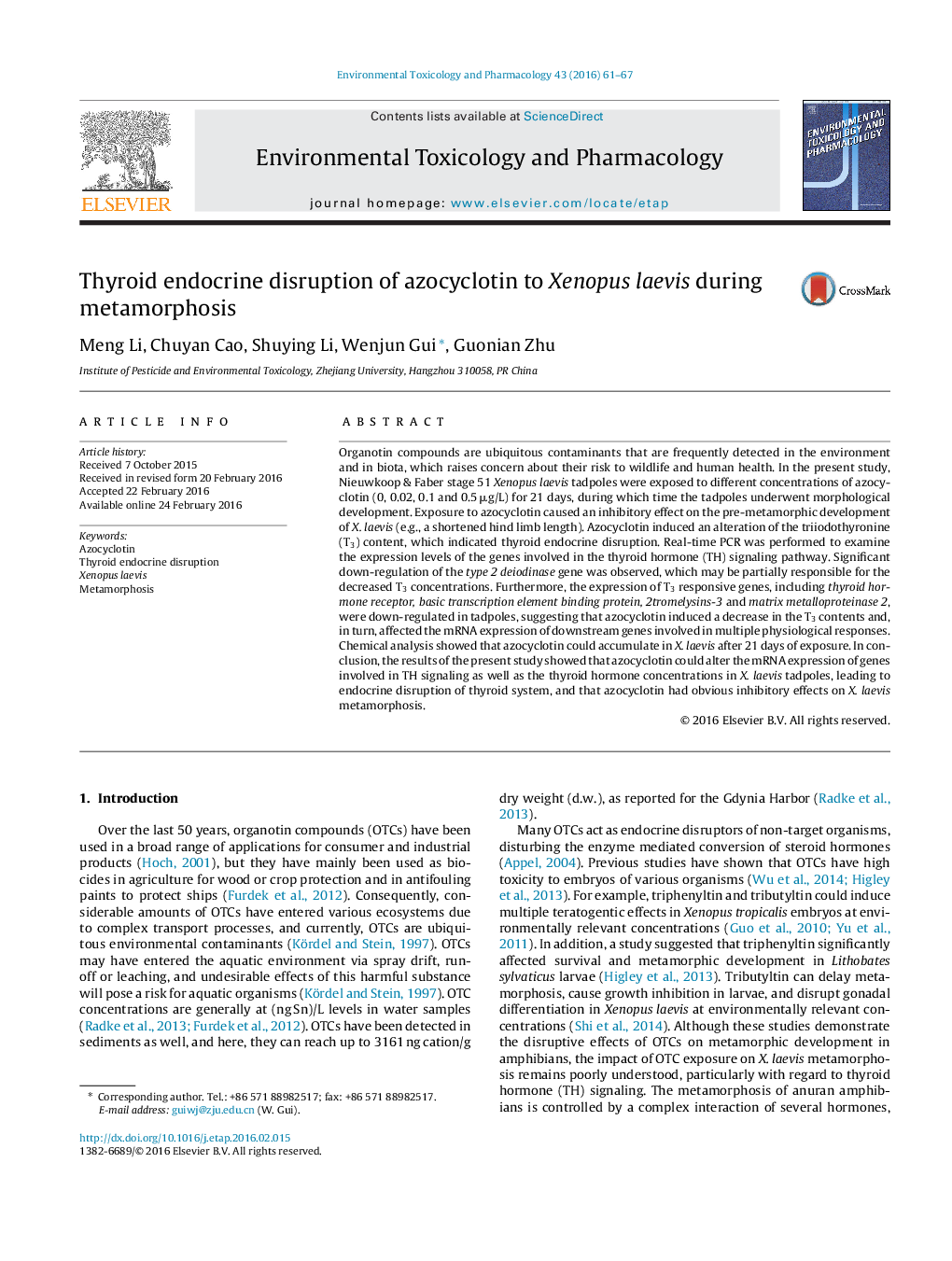| کد مقاله | کد نشریه | سال انتشار | مقاله انگلیسی | نسخه تمام متن |
|---|---|---|---|---|
| 2582753 | 1561701 | 2016 | 7 صفحه PDF | دانلود رایگان |

• The bioaccumulation of azocyclotin in Xenopus laevis tadpoles was studied.
• Azocyclotin exhibited obvious inhibitory effects on Xenopus laevis metamorphosis.
• Genes involved in thyroid hormones signaling were down-regulated after azocyclotin exposure.
• Levels of thyroid hormones decreased in Xenopus laevis tadpoles after azocyclotin exposure.
Organotin compounds are ubiquitous contaminants that are frequently detected in the environment and in biota, which raises concern about their risk to wildlife and human health. In the present study, Nieuwkoop & Faber stage 51 Xenopus laevis tadpoles were exposed to different concentrations of azocyclotin (0, 0.02, 0.1 and 0.5 μg/L) for 21 days, during which time the tadpoles underwent morphological development. Exposure to azocyclotin caused an inhibitory effect on the pre-metamorphic development of X. laevis (e.g., a shortened hind limb length). Azocyclotin induced an alteration of the triiodothyronine (T3) content, which indicated thyroid endocrine disruption. Real-time PCR was performed to examine the expression levels of the genes involved in the thyroid hormone (TH) signaling pathway. Significant down-regulation of the type 2 deiodinase gene was observed, which may be partially responsible for the decreased T3 concentrations. Furthermore, the expression of T3 responsive genes, including thyroid hormone receptor, basic transcription element binding protein, 2tromelysins-3 and matrix metalloproteinase 2, were down-regulated in tadpoles, suggesting that azocyclotin induced a decrease in the T3 contents and, in turn, affected the mRNA expression of downstream genes involved in multiple physiological responses. Chemical analysis showed that azocyclotin could accumulate in X. laevis after 21 days of exposure. In conclusion, the results of the present study showed that azocyclotin could alter the mRNA expression of genes involved in TH signaling as well as the thyroid hormone concentrations in X. laevis tadpoles, leading to endocrine disruption of thyroid system, and that azocyclotin had obvious inhibitory effects on X. laevis metamorphosis.
Journal: Environmental Toxicology and Pharmacology - Volume 43, April 2016, Pages 61–67